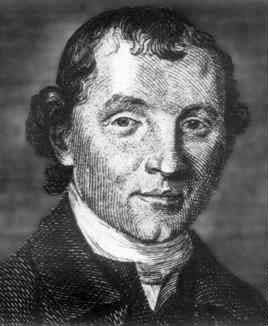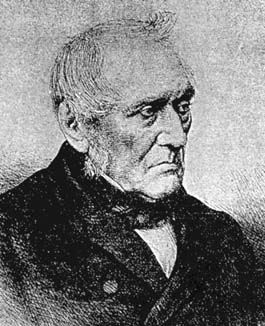<Back to Index>
- Mathematician Thomas Simpson, 1710
- Author Bolesław Prus, 1847
- Président de la République Française Raymond Poincaré, 1860
PAGE SPONSOR


Thomas Simpson (20 August 1710 – 14 May 1761) was a British mathematician, inventor and eponym of Simpson's rule to approximate definite integrals. The attribution, as often in mathematics, can be debated: this rule had been found 100 years earlier by Johannes Kepler, and in German is the so-called Keplersche Fassregel.
Simpson was born in Market Bosworth, Leicestershire. The son of a weaver, Simpson taught himself mathematics, then turned to astrology after seeing a solar eclipse. He also dabbled in divination and caused fits in a girl after 'raising a devil' from her. After this incident, he and his wife had to flee to Derby. They later moved to London.
From 1743, he taught mathematics at the Royal Military Academy, Woolwich.
Apparently, the method that became known as Simpson's rule was well known and used earlier by Bonaventura Cavalieri (a student of Galileo) in 1639, later rediscovered by James Gregory, and was only attributed to Simpson.
In 1758, Simpson was elected a foreign member of the Royal Swedish Academy of Sciences.